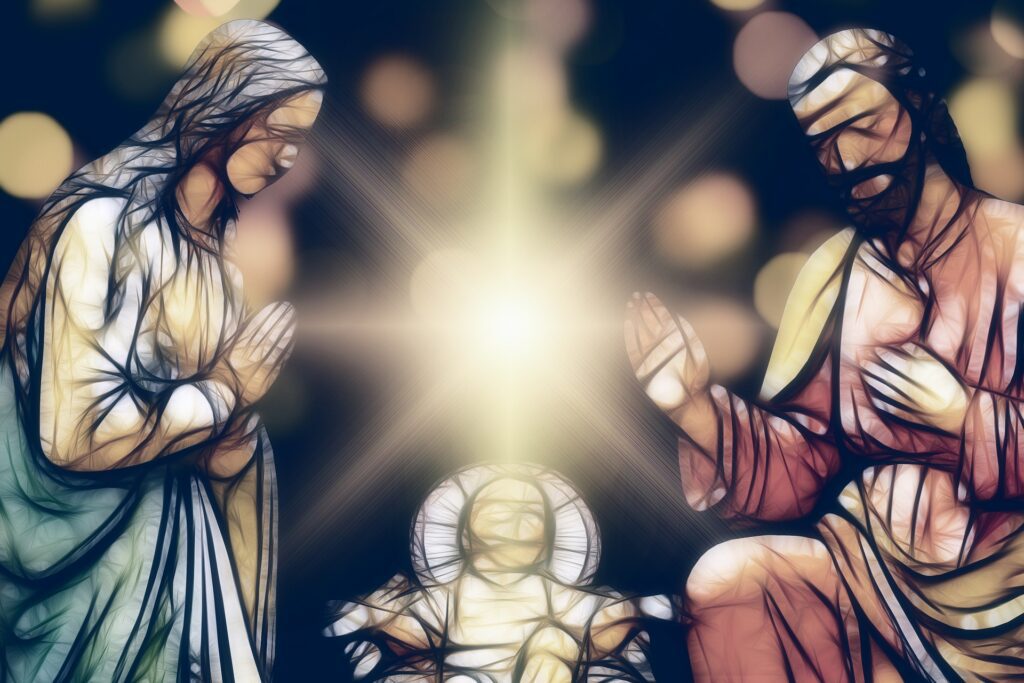This page may contain affiliate links, which means I may receive a commission from purchases made through links.
If you have found yourself wandering onto my blog, I want to start by saying thank you. Welcome to what I hope will be a learning experience for myself and for you. In this post, we will explore a commonly misunderstood passage of Scripture. This will challenge us to think the thoughts of God. This will lay the groundwork for my blog as a whole.
Before we get started, I want to encourage you to bear with me. Writing a blog is new to me. I have, for several years now, been dreaming of writing and producing theological content. This is my biggest step yet. As I go on, it may evolve, but this is where it starts.
Thinking Heaven’s Thoughts
My desire in this blog is to discuss the things of God, even when those things make us uncomfortable. And along the way I will say some things that may hurt your feelings. However I may also say things that validate your point of view or your way of life.
And that brings me to what this blog is all about: the way of life we choose for ourselves. There is a powerful passage of Scripture in the book of Isaiah the Prophet in which God speaks to the people of Israel, commanding them to seek him. Then he says this: “For my thoughts are not your thoughts, neither are your ways my ways, declares the LORD. For as the heavens are higher than the earth, so are my ways higher than your ways, and my thoughts higher than your thoughts” (Isaiah 55:8-9).
I love this passage because it is a reminder that whatever we go through, we can be patient and trust that God has plans for our lives so far beyond what we can imagine. Or at least that is how I have most often heard it preached in the church.
Now don’t get me wrong, that statement is not untrue. God does have plans for our lives, and they are beyond what we can currently comprehend. Howver, this has quite a different meaning when we consider the whole chapter that these verses are a part of. In time we will see that the Lord is not merely encouraging the people of Israel to trust him with a passive, God-works-all-things-for-good kind of trust. He is giving them the opportunity to trust him through active obedience.
“Do What I Would Do”
In case you don’t know, the Bible was not written in chapters and verses (except maybe the Psalms). Even the larger chapter that we cover here is only a small part of a longer-running prophecy in this book. However, this chapter division gives us a solid starting point for this discussion.
Right before these two verses that we read, verses 6-7 say this: “Seek the LORD while he may be found; call upon him while he is near; let the wicked forsake his way and the unrighteous man his thoughts; let him return to the LORD, that he may have compassion on him, and to our God, for he will abundantly pardon” (emphasis added).
It is after this that God says that his own thoughts and ways are not the same as ours. In other words, God says: “Instead of doing what comes natural to you, do what comes natural to me. Do what I would do. Do what I have told you to do.”
An Everlasting Sign
Doing this has some incredible results. Listen to what happens when we obey God: “You shall go out in joy and be led forth in peace; the mountains and the hills before you shall break forth into singing, and all the trees of the field shall clap their hands. Instead of the thorn shall come up the cypress; instead of the brier shall come up the myrtle; and it shall make a name for the LORD, an everlasting sign that shall not be cut off” (verses 12-13).
This shows us that obedience to God brings life to us and to the world around us. This life becomes an “everlasting sign.”
Earlier verses in this passage reveal the same thing: “Incline your ear, and come to me; hear, that your soul may live; and I will make with you an everlasting covenant, my steadfast, sure love for David.” For context, God made a promise to King David that there would always be a king on his throne. He kept this promise when Jesus ascended to become the forever King of Israel. We know also that Jesus is not just the ruler of Israel, but of the entire earth. And just as God made David “a witness to the peoples” (non-Israelite nations), he says that “you shall call a nation you do not know, and a nation that did not know you shall run to you, because of the LORD your God.”
God told the people of Israel that he will bring them into healthy relationship with the nations around them. And he said that the Gentiles (foreigners) will run to them. This is intimately related to the covenant God made with their ancestor Abraham in Genesis 22:18. He said, “In your offspring shall all the nations of the earth be blessed.”
A Holy Nation
New Testament writers show in several places that this is a prophecy of Christ being a blessing to all nations, just as God called his people to be “a light for the nations” in Isaiah 49:6. God wanted their lives to cause the other nations to leave their gods and serve the Most High. The true God, the God of love, mercy, justice, life, joy, and peace, is Yahweh.
Sadly, God’s people largely failed to do this. They frequently allowed foreign gods into their worship. They oppressed the poor and the socially powerless. And they listened to those who spoke falsely in the name of Yahweh. But when Christ established the church, this concept of being “a light for the nations” presented a deeper truth: God is not concerned with political powers, but with people. His kingdom, as Christ has said, “is not of this world” (John 18:36). Citizenship in God’s kingdom is not about borders, but about loyalty. And those who turn to Christ have become members of a new spiritual “holy nation” (1 Peter 2:9). The Apostle Paul calls this nation “the Israel of God” (Galatians 6:16). This new Israel is Christ,1 and therefore, his Body, the church.
Now hear me: This does not mean God hates or no longer loves the physical children of Israel. It does mean, however, that he has transferred to the church the responsibility of being that light to the nations. If this is the case, then we should carefully consider the lessons (even the hard ones) the Israelites were taught to see how we might live as “the light of the world” (Matthew 5:14).
Higher Thoughts
Today we learn one reality that is consistent across all generations and borders: The ways of God lead to life. Contrary to this, we are taught in the book of Proverbs that “there is a way that seems right to a man, but its end is the way to death” (14:12; 16:25). So when God tell us his ways are higher than ours, he is not telling us to trust the mystery of his sovereignty. Rather, he is commanding us to lean into the revelation of his righteousness. He wants us to exhibit his goodness.
Growing up, I heard a lot of parents tell their children to do something “because I said so.” This leads to behavior modification without value impartation. I am that thankful my mother never left my “why” unanswered for very long. In the same way, God tells us frequently in the Scriptures to obey him, not on blind faith, but on the promise that his ways produce life for our souls and for others.
In this first post of Think Like Heaven, I hope that you leave this moment aware that there is a greater calling for us. As we seek him, I pray that we learn to observe the Master and follow his higher ways and think his higher thoughts. I pray that we no longer settle for passive Christianity that waits for God to snatch us up from the world, and that we would embrace the deep, intensely difficult call to draw the world around us to Christ through the way we live. I pray that we would no longer hide behind pulpits, pews, and potlucks, and that we would engage the world around us with the good declaration that Jesus Christ is King, and that his kingdom is here to change the world.
Footnotes
*If you enjoyed this post, please comment your thoughts down below and consider subscribing to receive updates on new blog posts.
- See my blog posts, Beyond Ritual: Fulfillment in Jesus’ Baptism and Stairway to Heaven: Jesus and Genesis. ↩︎




As a longstanding blogger, I appreciate your commitment and hope. The web seems to favor some and ghost others. I pray you will be on the visible side of the Internet and that salt and light will be evident in what God gives you to share.
I am so happy this is up and running. Thank you for your insight. I look forward to following your posts!
Excellent first entry. I will be following along to see what’s in store for your blog!
Thank you! I was blessed by your thoughts, and look forward to more!
I’m so proud of you, baby!